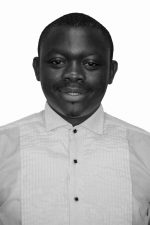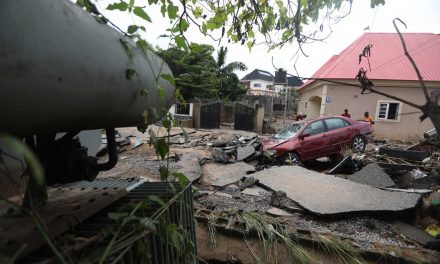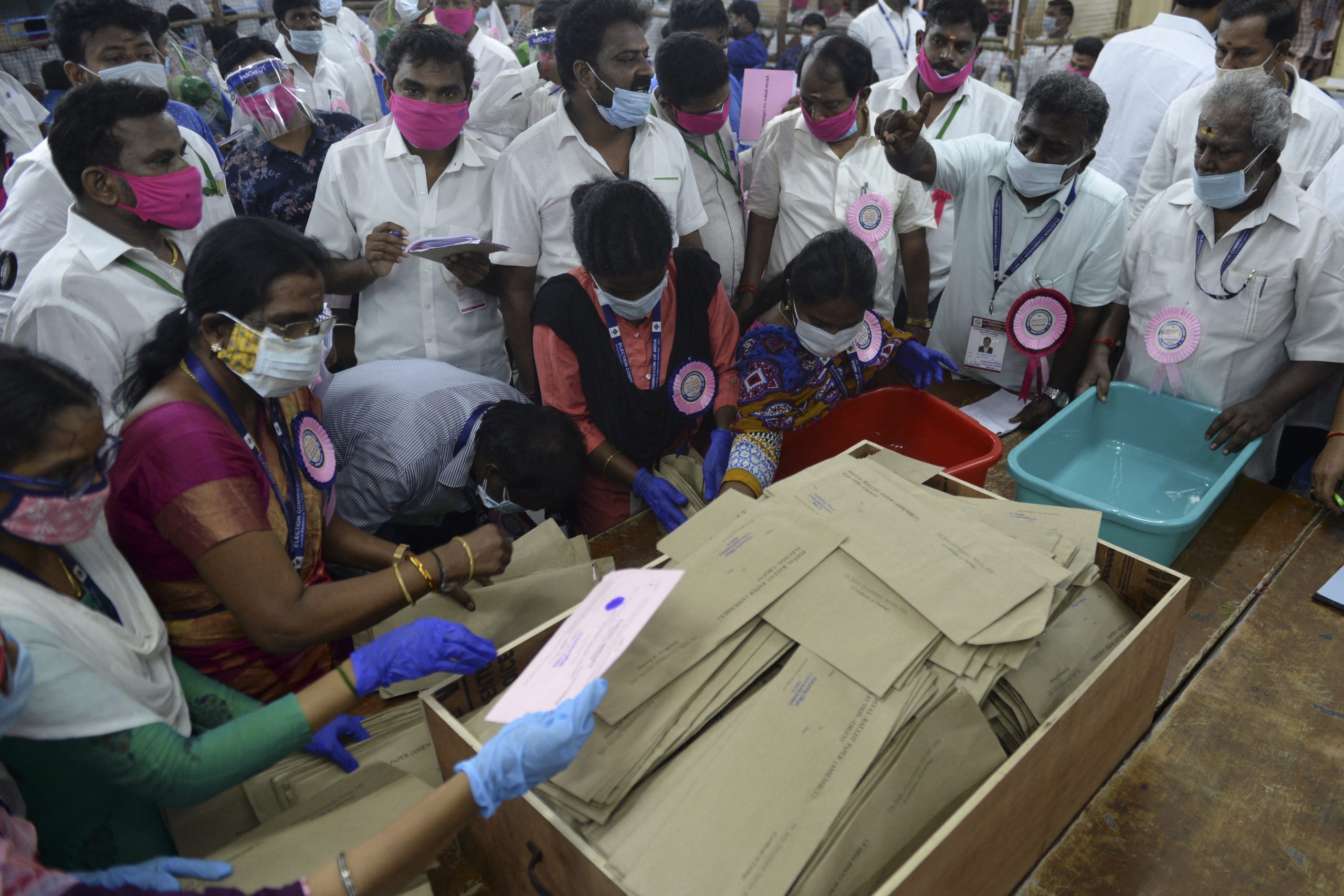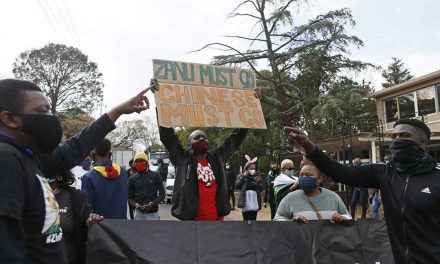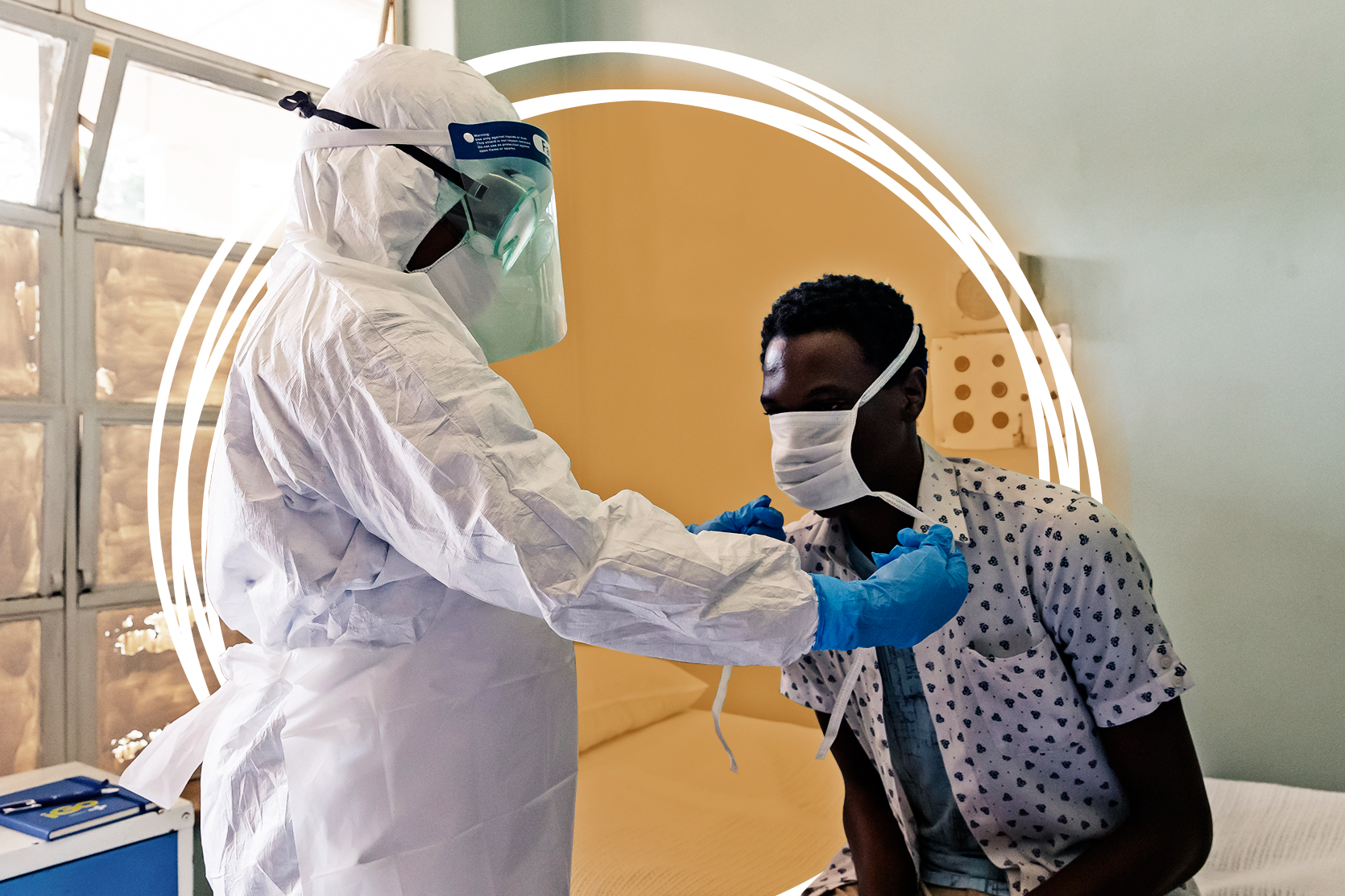
Cameroon is one of the most badly hit countries by the coronavirus in Sub-Saharan Africa. By 11 July, the country had recorded 15,173 cases, emerging with about half of the total number of cases in the central African sub-region.
In a bid to flatten the curve of contagion following the country’s first recorded case on 6 March, the government of Cameroon put in place a strategy dubbed 3T: Track, Test, Treat. It set three strategic priorities: stop, or at least control community transmission; check morbidity and mortality, in particular for health personnel; and reduce the impact of the virus on the country’s health system.
Cameroon is one of the most badly hit countries by the coronavirus in Sub-Saharan Africa.
On 24 June, the Ministry of Public Health announced that some 10,100 out of 12,592 confirmed cases of the coronavirus had recovered. It also said it had carried out about 80,000 tests, surpassing a 50,000 target.
On 2 July, the Minister of Public Health, Dr Manaouda Malachie announced that specialised treatment centres following a standard plan would be constructed in all ten regions of the country. The aim, he said, was to strengthen Cameroon’s health system even beyond the pandemic. The centres will be added to a complement of already functional treatment centres for Covid-19, such as those set up at the Yaounde Military Stadium and ORCA Yaounde.
Like other African countries known to be notoriously poorly equipped, Cameroon’s health system was not prepared to handle a pandemic of the magnitude of the coronavirus. A Reuters survey found out that there is an average of less than one intensive care bed and one ventilator per 100,000 people in Africa, unlike 20 to 31 intensive care beds per 100,000 people in the United States. In Cameroon, the Reuters survey shows that there were just 40 ventilators in the country by 7 May, while, according to estimates by the London Imperial College, 2,422 might be needed at the peak of the pandemic which was projected to be reached around mid-June.
Dr Manaouda Malachie announced that specialised treatment centres following a standard plan would be constructed in all ten regions of the country.
To make coronavirus testing and treatment accessible to all Cameroonians, the government has made it free. However, some unscrupulous health personnel and structures have been reportedly charging vulnerable patients. This prompted the Minister of Public Health to put in place a commission, comprising officials of the Ministry of Public Health and the General Delegation for National Security, to investigate corruption in relation to the campaign against the virus.
The country is also in short supply of health personnel such as doctors, critical care nurses, anaesthesiologists and biotechnicians. For instance, Cameroon has less than one physician per 10,000 population. Recently, President Paul Biya signed a decree increasing the retirement age of civil servants of the public health corps to 60 years for categories ‘A’ and ‘B’ (senior), and 55 years for categories ‘C’ and ‘D’ (junior). The aim is to retain their skills, given the shortages of younger staff (themselves due to poor policy and implementation in the long term). Experienced staff are apparently happy to return to work. Serving longer will mean having more time to earn a public service salary before retirement.
To make coronavirus testing and treatment accessible to all Cameroonians, the government has made it free.
In a separate decree, and for the same reason, the Prime Minister Chief Dr Joseph Dion Ngute also increased by five years the retirement age of state medical and paramedical personnel governed by the Labour Code.
In addition, organisations such as the World Health Organisation and the Jack Ma Foundation have been reaching out to Cameroon with material assistance. The country’s health system received 183 oxygen concentrators, which Minister Manaouda said had been dispatched to various health facilities for the care of coronavirus patients and others suffering from respiratory illnesses. However, he did not make public the country’s current capacity to treat the virus.
To help see it through such periods of distress, Cameroon has the long-established Health Solidarity Fund, an emergency fund intended to “provide surge support during health emergencies”. Under a 1993 law, public primary healthcare establishments are compelled to deposit 10% of their monthly revenue into the Health Solidarity Fund (HSF). Hospitals are supposedly exempt, but medical staff say that they too pay into the fund, according to Human Rights Watch (HRW).
Prime Minister Chief Dr Joseph Dion Ngute also increased by five years the retirement age of state medical and paramedical personnel.
But the global human rights watchdog says that too little information is available on the fund’s revenues, disbursement and management.
A medical doctor in the public service, who preferred anonymity, told Africa in Fact that most health facilities have for a long time been making payments into a fund that “is a big sham.” Outside commentators share his view. “Cameroon is the Central African country with the highest number of confirmed Covid-19 cases, yet the government appears not to have disbursed funds from a reserve that healthcare facilities have been paying into exactly for emergencies like this one,” wrote Lewis Mudge, Central Africa Director at HRW, in a 12 June article.
The sudden onset of the Covid-19 pandemic has revealed Cameroon’s glaring lack of resources adequate to respond such a crisis. On 31 March 2020, it launched a Coronavirus Response Special National Solidarity Fund to raise funds from public donation to treat and contain the virus. The minister of public health said about XAF 3.5 billion (about $6 million) had been raised by 14 May, 2020, according to a Business in Cameroon report.
The sudden onset of the Covid-19 pandemic has revealed Cameroon’s glaring lack of resources adequate to respond such a crisis.
Yet medical staff in the country say they have no information about disbursements from the HSF, the already existing fund, according to HRW. Healthcare workers report shortages in thermometers, disinfectants, medicines, ventilators, oxygen and protective gear for doctors and nurses. The human rights organisation says that WHO had declared Covid-19 a pandemic and that this should have been reason to “trigger disbursements”.
The question is why such a new fund is necessary, given that one already exists, and was established more than 25 years ago. This is probably a matter of corruption. Another question is why a new body has been set up to investigate corruption. The answer might be found in the fact that President Paul Biya’s administration has long been accused of using anti-corruption bodies to crack down on political opponents and this new commission appears to be little different.
We’d love to hear from you! Join The Wicked Conversation by leaving your comments below, or send your letter to the editor to richard@gga.org.
Amindeh Blaise Atabong is a Cameroonian freelance journalist. His interests include gender, human rights, climate change, environment, tech, conflict, peace-building and global development. In 2019, he was a finalist in the inaugural True Story Award, and also won a prestigious Kurt Schork Award in International Journalism. His works have been published by independent regional and international outlets, including Quartz, Mail & Guardian, Reuters, Jeune Afrique, Epoch Times, African Arguments and Equal Times.


